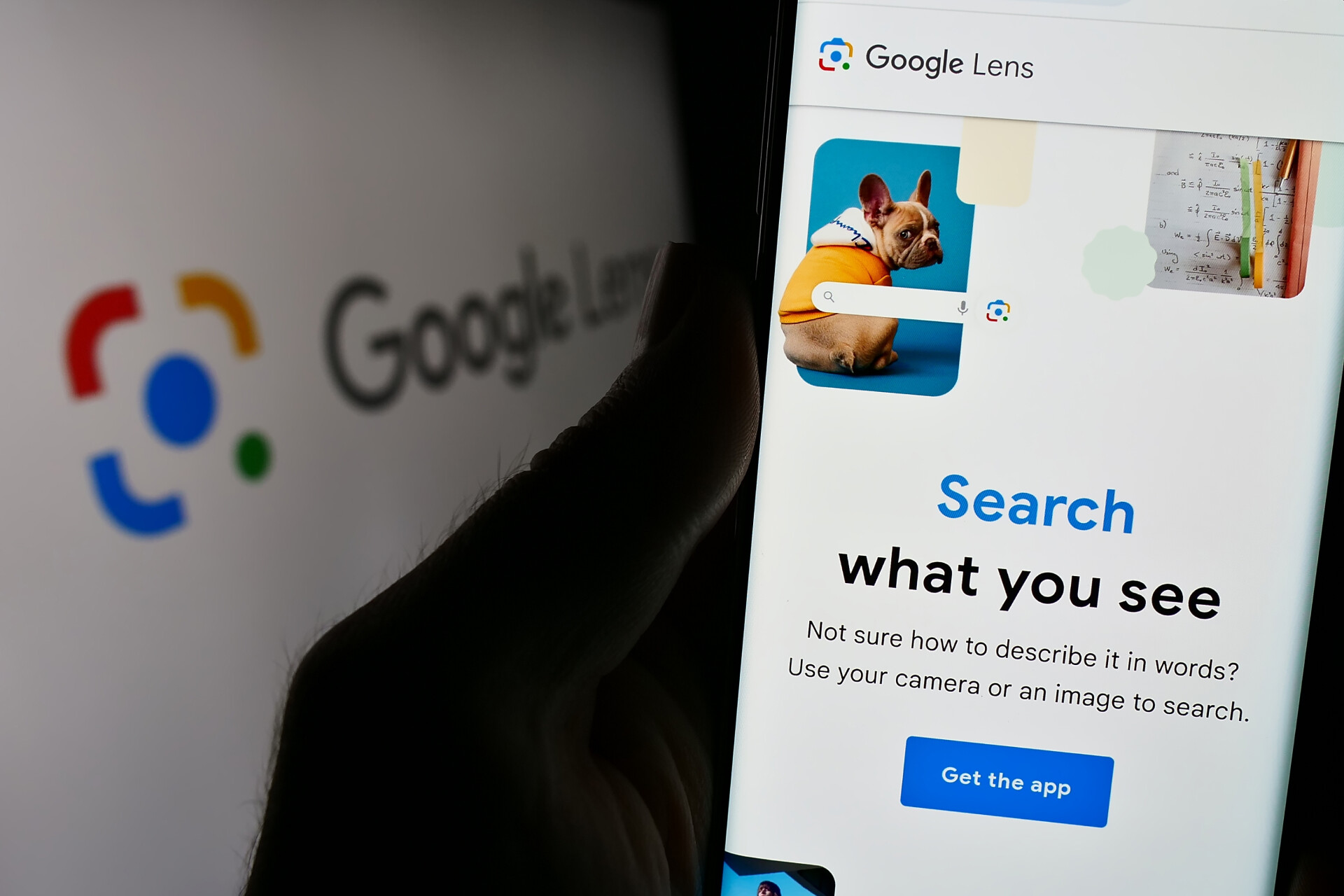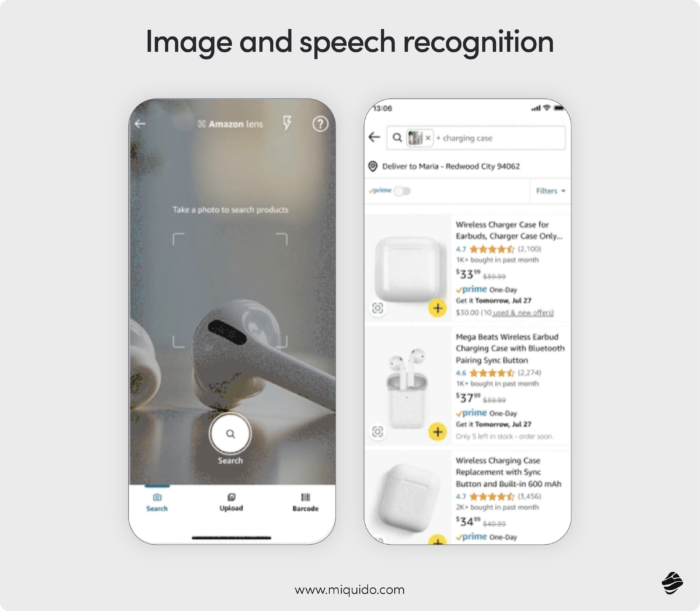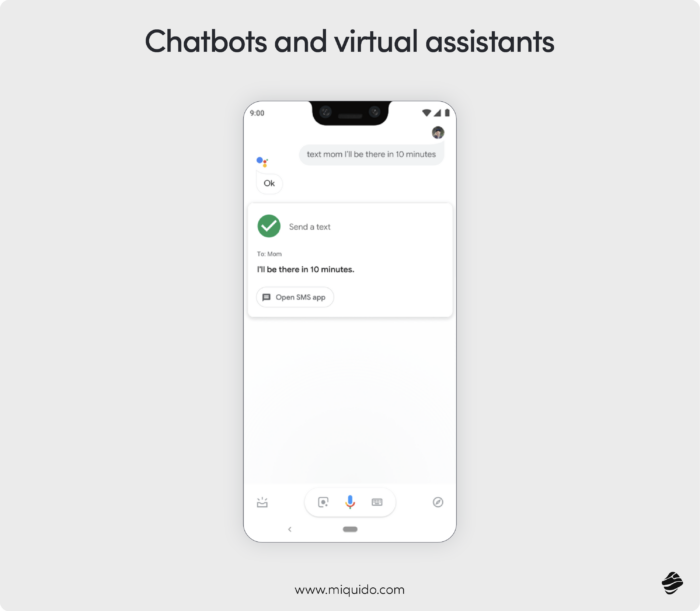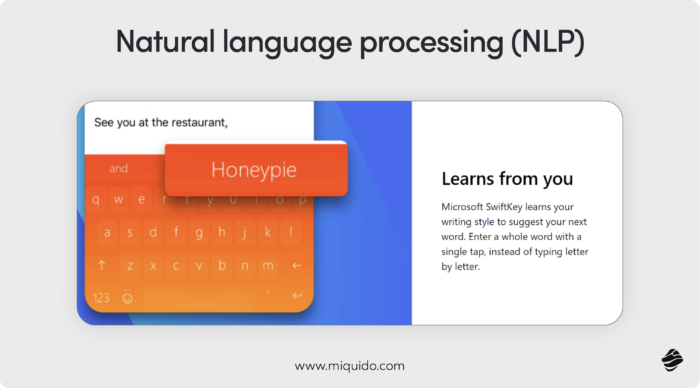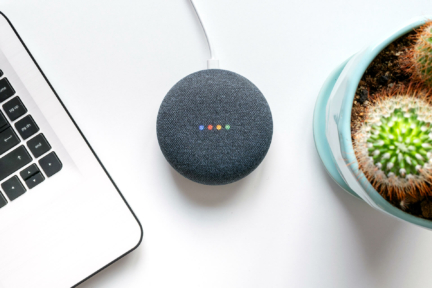Mobile apps have become smarter, faster, and more intuitive—all thanks to the power of Artificial Intelligence (AI). Unlike traditional software, AI-powered apps use advanced algorithms to mimic human decision-making, providing smarter and more intuitive experiences. However, AI goes beyond simply automating processes.
By analyzing user data and preferences, AI-powered apps can tailor content, recommendations, and interactions to each individual user. This manifests in different ways—it could be your favourite streaming app recommending the perfect show or your virtual assistant scheduling appointments with just a voice command.
Either way, the current AI trends in mobile apps are completely redefining user experiences. But what are the most game-changing AI features behind the apps that we almost can’t live without now? Let’s dive into eight of the most valuable AI features in mobile apps currently.
1. User personalization
User personalization is one of the most valuable AI features in mobile apps. It allows apps to adapt content and functionality based on user preferences and behaviours.
A great example of AI-driven personalization comes from Netflix. The platform uses an advanced algorithm to recommend shows and movies based on what a user has watched previously.
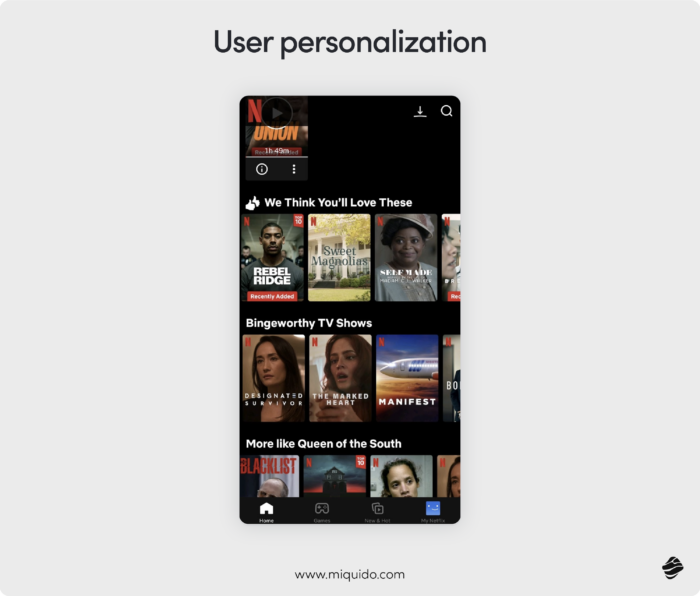
Their algorithm is so effective that approximately 80% of users watch the streaming service’s title recommendations. Such mechanisms create a more engaging and enjoyable experience, ensuring that users are constantly presented with relevant content.
As a result, more satisfied users stay on the platform and are likely to renew their subscriptions.
Another great example is Empik Go, the largest collection of audiobooks and eBooks in Poland. It is accessible via mobile devices and has an easy subscription model. Users can see personalized audiobook and eBook recommendations based on their usage history.
For lifestyle and fashion apps, AI features can enhance product recommendations according to preferences such as colors, shapes, or styles.
2. Image and speech recognition
Image and speech recognition are the other transformative and advanced AI features pushing the boundaries of what apps can achieve in just a few taps.
Image recognition
AI-driven image recognition allows apps to identify objects, scenes, or even faces. This is particularly beneficial in photo apps, retail or eCommerce apps, and security-related software.
For instance, Amazon’s eCommerce platform uses image recognition to provide a seamless shopping experience. Using their Amazon Lens feature, users can upload an image, take a photo, or scan a barcode to discover exact visual matches on the app.
Google apps also uses image recognition for several purposes. For instance, the Google Lens technology helps detect objects a user is pointing their camera at, as shown below.
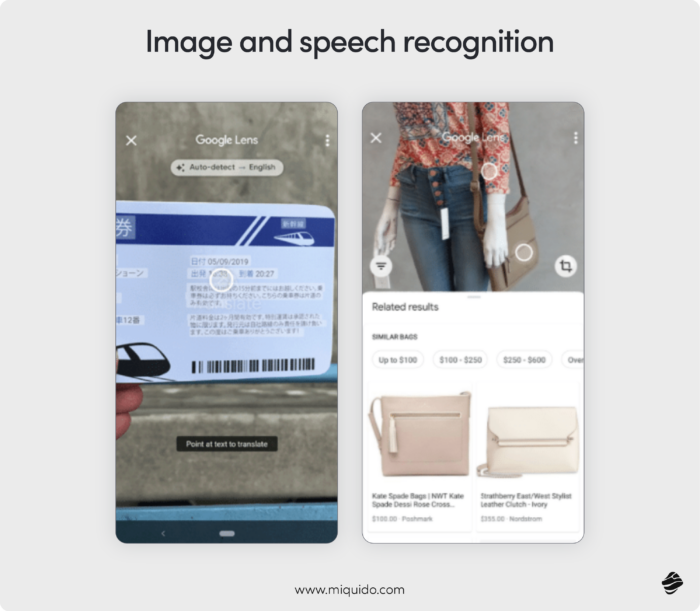
Samsung’s Galaxy AI also provides similar capabilities, allowing users to search products from images by drawing a circle around them.
Speech recognition
Speech recognition, on the other hand, allows mobile apps to convert spoken language into text or commands that the app can process.
Some of the most popular usage examples in mobile applications include:
- Voice assistants: Assistants like Siri, Google Assistant, Bixby, and Alexa perform tasks like sending texts, making calls, and setting reminders. Users just need to simply ask them to do so. For instance, you can ask an assistant like Bixby to open a Samsung account login page or make phone calls.
- Dictation apps: These apps convert speech into text, offering a hands-free way to write notes, emails, or even transcriptions. A great example is Gboard, a virtual keyboard app developed by Google.
- Language learning apps: Apps like Duolingo also use speech recognition to help users practice pronunciation and learn new languages.
These two capabilities have significantly helped apps on smart devices become more accessible and interactive.
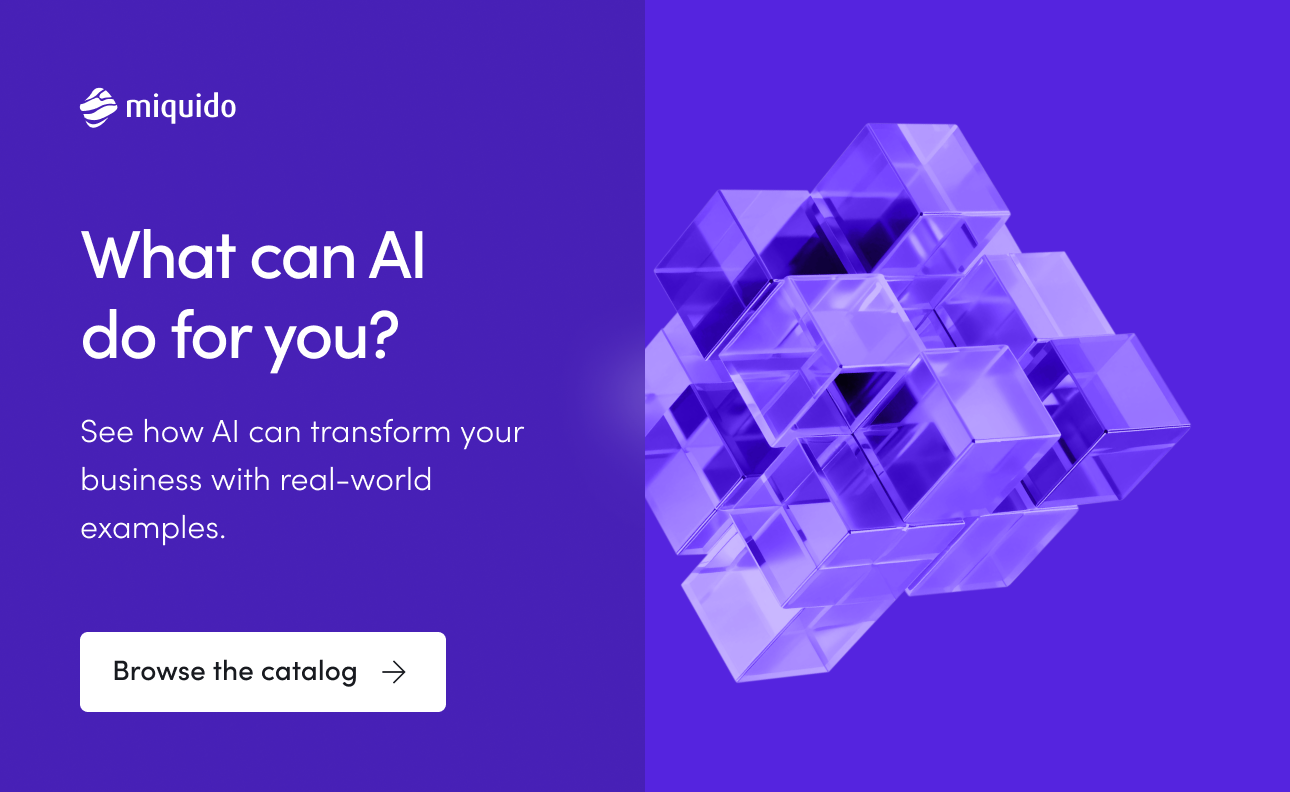
3. Chatbots and virtual assistants
These two features leverage AI to mimic human conversations. They communicate with users in a natural and conversational manner while resolving queries or executing more complex tasks.
Chatbots play a crucial role in conversational commerce, which is when businesses use chatbots to interact with customers in real-time while they shop. This makes it easy for users to find information and complete transactions.
For instance, they can ask for consumers’ preferences to recommend the most suitable products. As a result, chatbots are widely incorporated into AI phone apps to provide great customer service.
Virtual assistants, on the other hand, go beyond simple conversations. They use AI to perform tasks and manage various app functions on behalf of the user. Some of the most popular virtual assistants include Apple’s Siri, Amazon’s Alexa, and Google Assistant.
Another example is PZU, the largest insurance group in the CEE region, which provides an Insurance Assistant that supports the mobile purchase of travel policies. Customers can interact with the conversational interface to quickly find tailored offers, thanks to the Natural Language understanding algorithm built on Google Dialogflow.
The biggest advantage of integrating chatbots and virtual assistants in your mobile app is their ability to provide immediate assistance and improve overall efficiency. They are always available, respond quickly to requests, and can multitask, making them invaluable tools for both users and businesses.
4. Predictive analytics
Another great AI-powered feature in mobile apps is predictive analytics. Predictive analytics work by gathering vast amounts of user data, such as browsing habits, in-app interactions, location data, and purchase history.
After that, they apply machine learning algorithms to detect patterns and correlations that might otherwise be hard to notice. These patterns help the AI model predict future user behavior.
For instance, on eCommerce apps, AI can analyze a user’s previous purchases, product searches, and time spent on certain categories to suggest items they might want to buy. As a result, the app can make targeted recommendations, enhancing user experience and boosting conversion rates.
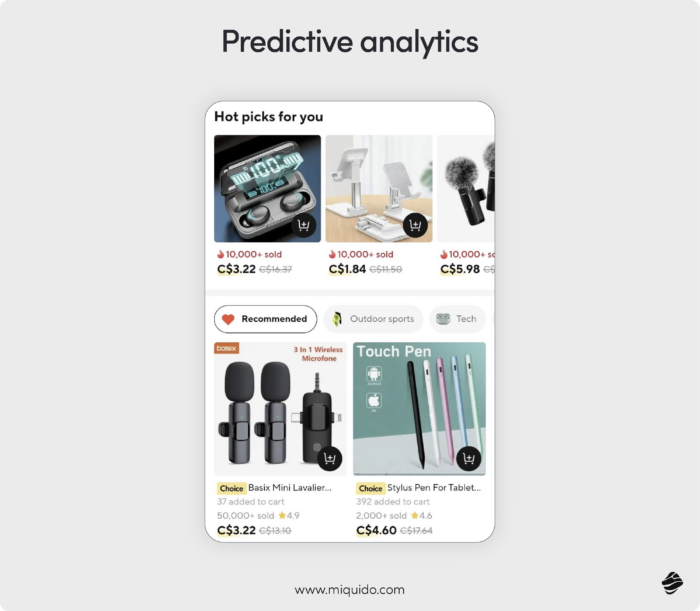
Predictive analytics can help you anticipate what users want and boost retention rates. They analyze historical data and user behaviour to identify users who are likely to churn. This will allow you to proactively retain customers, like running re-engagement campaigns.
5. Automated processes
Automation leverages artificial intelligence to perform repetitive tasks and manage workflows with minimal human intervention. This capability streamlines operations and enhances efficiency, productivity, accuracy, and user satisfaction.
For instance, an app like Gmail uses AI to automatically sort your emails into categories like Primary, Social, Promotions, and Updates. This helps you manage your inbox more efficiently instead of going through each email to determine those that should take precedence.
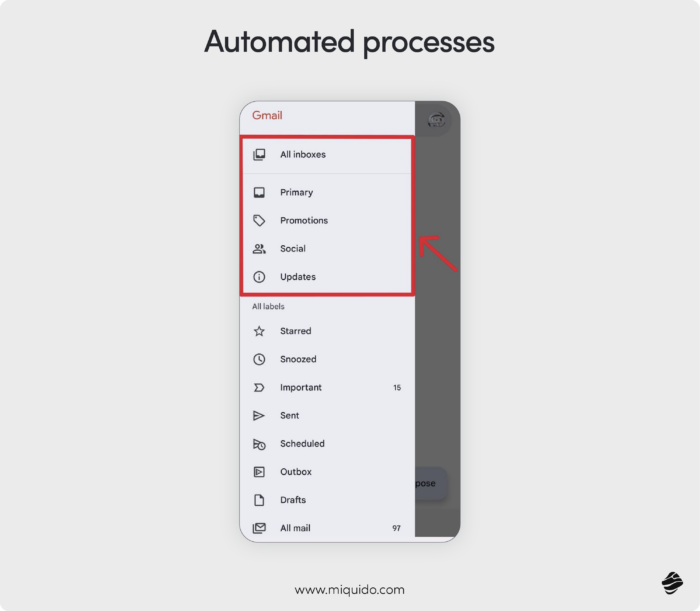
Moreover, ClickUp’s summarise feature is a strong example of how mobile apps leverage AI to streamline business processes. It enables users to quickly condense project tasks, making it easier to capture key points or stay updated without reading long descriptions.
We also can’t forget app notifications. AI-powered mobile phones automatically analyze user behaviour and app and device settings to send timely and relevant notifications. For example, fitness apps remind users to work out based on their activity patterns.
6. Security enhancements
Mobile app solutions keep getting more sophisticated, but so does the nature of cyber threats. In 2023 alone, Kaspersky blocked 33.8 million mobile malware threats on mobile devices — a significant increase of almost 52% from 2022’s 22.3 million. This shows the need for better security features on mobile apps.
While AI has its fair share of user privacy and data security concerns, we can’t deny that it also has some solid solutions, including:
- Advanced algorithms: AI algorithms monitor user interactions and network traffic to identify unusual patterns or anomalies that may indicate a security breach. For example, if there’s a sudden spike in login attempts from a different IP address, AI can temporarily deny app access until a user verifies their identity.
- Biometrics authentication: AI enhances the accuracy and security of biometric authentication methods that verify users through biological traits like fingerprints, face features, or voice patterns. For example, advanced AI models can easily distinguish between a real face and a photo in facial recognition systems.
- Behavioural biometrics: AI uses behavioural biometrics to authenticate users based on unique interaction patterns, such as typing speed and swipe gestures. This method provides an additional security layer by detecting deviations from typical behaviour, which could indicate unauthorized access.
These AI features enhance mobile app security by providing proactive, quick, and adaptive security measures. Speaking of adaptive, remember that AI is continuously learning, which means its security solutions will only keep getting smarter and better.
7. Natural language processing (NLP)
When you use AI-based chatbots and virtual assistants today, you can almost not tell that you are speaking to a machine. These seamless interactions are thanks to Natural Language Processing, a key AI feature that enables mobile apps to interact more naturally with human language.
For instance, say you ask Google AI Assistant, “What’s the weather today?” or ask it to “Set a reminder for my meeting at 3 PM”. It will process these commands and provide accurate responses or execute the tasks just like a normal human would, if not better.
Also, while autocorrect and autocomplete are predictive in nature, they leverage NLP techniques to understand and suggest text based on the user’s context.
Microsoft SwiftKey is a great example of a mobile app that does this. It is an intuitive on-device AI feature that learns from the user and suggests appropriate words. The keyboard can be used on iPhones, iPads, and Android devices like Samsung or Google Pixel phones.
NLP can also be instrumental in conducting sentiment analysis on user-generated text, like reviews or other kinds of user feedback. It helps businesses accurately gauge public perception and respond to customer feedback more effectively.
For instance, an app like Aide has topic detection and sentiment analysis capabilities. They help support teams that receive a high volume of customer correspondence prioritize urgent complaints with negative sentiments.
This helps prevent potential damage to a brand’s reputation. While Aide is not exactly a mobile app, it is a great feature you can integrate when developing your mobile app.
8. Dynamic UI
Dynamic User Interfaces (UI) powered by AI bring a new level of flexibility and adaptability to mobile apps. Unlike static interfaces, whose layout and content are the same across the board, dynamic UIs adjust and respond to user preferences in real time. This enables them to offer each user a more engaging and personalized experience.
Most social media apps, e-commerce platforms, and news mobile apps typically have dynamic UI. For instance, Google News adjusts the layout and content displayed based on the user’s location, current events, and reading habits. If a user is traveling, Google News also adapts to that. You’ll see some local news and updates from your travel destination.
The many AI-powered low-code or no-code platforms available today allow developers to create dynamic UIs with minimal manual coding. These tools provide visual design interfaces and pre-built components that you can easily adapt to create dynamic, user-centered experiences. This has helped speed up app development and customization and lowered AI app development costs.
Are you looking to develop a great AI-powered mobile app in a short time frame? Try our AI Kickstarter solution, which we will discuss in depth next.
AI Kickstarter and Miquido’s solutions
AI Kickstarter is a framework provided by Miquido that simplifies and standardizes the development of Generative AI solutions.
Remember, though closely related Generative AI features differ from AI through its capabilities and purpose. The magic editor and magic eraser features on the Google Photos app are great examples of Gen AI features.
Our Kickstarter framework helps you create reliable, secure, and scalable Gen AI solutions. You can do it up to three times faster than traditional ground-up AI development, shortening your product’s time to market and significantly lowering the cost of development.
Some of the framework’s key features include:
- RAG architecture: A Retrieval-Augmented Generation (RAG) architecture enhances the capabilities of Large Language Models (LLMs) by integrating an information retrieval system. As a result, your output will always be up-to-date and contextually relevant.
- Flexible models: Supports all types of Small Language Models (SLMs) and Large Language Models (LLMs) with dynamic model switching. This lets you choose the most suitable AI model for your performance needs and budget. The flexibility also ensures you can adapt to different use cases and data requirements.
- Data management tools: Offers 20 AI tools for efficient data management, such as content rephrasing, task planning, and execution. These tools make it easier to handle large amounts of data and automate tasks, improving productivity and the efficiency of your AI projects.
- Seamless integration: APIs and custom integrations ensure smooth integration with third-party systems like CMS (Content Management System), CRM (Customer Relationship Management), databases, and intranet solutions.
These features help you build powerful AI applications quickly, efficiently, and securely, making Miquido’s AI Kickstarter a robust solution for your AI development needs.
Why work with us? Miquido has over 12 years of experience building digital products and over 6+ years of AI experience. We also have a full-service approach, from developing the product strategy to the development process, maintenance, 24/7 client support, and future updates.
Future trends in AI for mobile apps
Now that you understand the current mobile technology landscape, what does the future look like for AI-powered mobile apps?
- Deep learning models and personalization: Apps like Duolingo and Netflix already use deep learning to personalize their content. However, we expect deep learning models to continue enabling even more advanced personalization features in mobile apps. Hyper-personalization will become standard for most mobile apps.
- Mobile payments and fraud detection: As mobile banking and digital wallets become more prevalent, AI’s role in ensuring safe and secure payments will grow even more critical.
Though not necessarily a trend, given the security and bias concerns AI continues to face, we might see a shift towards more transparency and accountability to win users’ trust. As a result, we are likely to see a resurgence of Explainable AI (XAI).
XAI implements certain techniques to ensure any decisions made or results can be traced and explained. It will make it easy to check for accuracy and build trust. This is especially crucial since AI phones are becoming increasingly common among key manufacturers like Apple and Samsung who continue to integrate more advanced AI capabilities into their devices.
In closing
The integration of AI features in mobile apps is reshaping the mobile app landscape, making apps more intelligent, user-friendly, and secure.
As we’ve seen, you can embrace multiple AI features to boost user engagement and satisfaction, from personalization to predictive analytics, automation, and virtual assistants.

